Table of Contents
The Kendriya Vidyalaya Sangathan (KVS) Syllabus 2025 for TGT, PRT, and PGT recruitment is structured to assess candidates across four key sections: General English & Hindi, General Knowledge & Current Affairs, Reasoning Ability, and Perspectives on Education & Leadership. Each section plays a crucial role in evaluating candidates’ subject knowledge, teaching aptitude, and general awareness.
KVS Syllabus and New Exam Pattern 2025
Candidates preparing for the KVS 2025 examination should carefully review the updated syllabus to improve their preparation. A comprehensive understanding of the syllabus, combined with an analysis of frequently tested topics from previous years, will help aspirants focus on high-scoring areas. This article provides a detailed breakdown of the KVS PRT, TGT, and PGT syllabus, assisting candidates in streamlining their study plans and maximizing their performance in the exam.
KVS Syllabus For TGT PGT PRT Post
Candidates aiming to excel in the recruitment process must thoroughly understand the updated KVS syllabus and exam pattern 2025. A well-structured preparation plan begins with analyzing the exam pattern to understand the weightage of different sections. The KVS syllabus, available in PDF format, provides a detailed framework for various teaching positions, including PRT, TGT, PGT, and Principal roles.
KVS PRT Exam Pattern 2025
The KVS PRT Exam 2025 follows a structured pattern, comprising 180 multiple-choice questions worth 180 marks, with no negative marking. The exam is conducted in a bilingual format and is divided into four key sections. Part-I assesses language proficiency with 10 questions each from General English and General Hindi (20 marks total). Part-II evaluates General Awareness, Current Affairs, Reasoning Ability (10 questions each), and Computer Literacy (5 questions), contributing to 30 marks. Part-III focuses on Perspectives on Education and Leadership, carrying 60 questions for 60 marks. Part-IV, the Subject Concerned section, contains 80 questions worth 80 marks. Candidates must attempt all questions to maximize their scores and improve their chances of selection.
| KVS PRT Exam Pattern 2025 | |||
|---|---|---|---|
| KVS Exam | KVS Subjects | Number Of Ques. | Total Marks |
| PART- I | General English | 10 | 10 |
| General Hindi | 10 | 10 | |
| PART-II |
General Awareness & Current Affairs | 10 | 10 |
| Reasoning Ability | 5 | 5 | |
| Computer Literacy | 5 | 5 | |
| PART-III | Perspectives on Education and Leadership | 60 | 60 |
| PART-IV | Subject Concerned | 80 | 80 |
| Total | 180 | 180 | |
KVS PRT Syllabus 2025
The KVS PRT Syllabus 2025 has been revised as per the latest KVS Notification. Candidates must review the updated syllabus carefully before beginning their preparation. The syllabus covers various subjects, ensuring a well-rounded evaluation of candidates’ knowledge and teaching abilities. The updated syllabus table provides a structured breakdown of topics, helping aspirants focus on key areas and streamline their study plan for the exam.
Paper -III: Perspectives on Education and Leadership
(a) Understanding the Learner
- Concept of growth, maturation and development, principles and debates of development, development tasks and challenges
- Domains of Development: Physical, Cognitive, Socio-emotional, Moral, etc., deviations in development and its implications.
- Understanding Adolescence: Needs, challenges, and implications for designing institutional support.
- Role of Primary and Secondary Socialization Agencies. Ensuring Home school continuity.
(b) Understanding Teaching Learning
- Theoretical perspectives on Learning -Behaviorism, Cognitivism, and Constructivism with special reference to their implications for:
(i) The role of the teacher
(ii) The role of the learner
(iii) Nature of teacher-student relationship
(iv) Choice of teaching methods
(v) Classroom environment
(vi) Understanding of discipline, power, etc. - Factors affecting learning and their implications for:
(i) Designing classroom instructions,
(ii) Planning student activities and,
(iii) Creating learning spaces in school. - Planning and Organization of Teaching-Learning
(i) Concept of Syllabus and Curriculum, Overt and Hidden Curriculum
(ii) Foundational Literacy and Numeracy, Early Childhood Care and Education
(iii) Competency based Education, Experiential learning, etc.
(iv) Instructional Plans: -Year Plan, Unit Plan, Lesson Plan
(v) Instructional material and resources
(vi) Information and Communication Technology(ICT) for teaching-learning
(vii) Assessment of learning, for learning and as learning: Meaning, purpose, and considerations in planning each. - Enhancing Teaching Learning processes: Classroom Observation and Feedback, Reflections and Dialogues as a means of constructivist teaching
c) Creating a Conducive Learning Environment
- The concepts of Diversity, disability, and Inclusion, implications of disability as a social construct, types of disabilities-their identification and interventions
- Concept of School Mental Health, addressing the curative, preventive, and promotive dimensions of mental health for all students and staff. Provisioning for guidance and counseling.
- Developing School and Community as a learning resource.
(d) School Organization and Leadership
- Leader as a reflective practitioner, team builder, initiator, coach, and mentor.
- Perspectives on School Leadership: instructional, distributed and Transformative
- Vision building, goal setting, and creating a School Development Plan
- Using School Processes and forums for strengthening teaching learning Calendar, time-tabling, parent-teacher forums, school assembly, teacher development forums, using achievement data for improving teaching-learning, School Self Assessment, and Improvement
- Creating partnerships with community, industry, and other neighboring schools and Higher Education Institutes — forming learning communities
(e)Perspectives in Education
- NEP-2020: Early Childhood Care and Education: The Foundation of Learning; Foundational Literacy and Numeracy; Curriculum and Pedagogy in Schools: Holistic & Integrated Learning; Equitable and Inclusive Education: Learning for All; Competency-based Learning and Education.
- Guiding Principles for Child Rights, Protecting and provisioning for rights of children to safe and secure school environment, Right of Children to Free and Compulsory Education Act, 2009,
- Historically studying the National Policies in education with special reference to school education;
- School Curriculum Principles: Perspective, Learning and Knowledge, Curricular Areas, School Stages — Pedagogy & Assessment.
| KVS PRT Syllabus 2025 (General paper) | ||
| TEST | SUBJECTS | Detailed Syllabus |
| PAPER I | General English | Reading Comprehension, Word Power, Articles, Narrations, Prepositions, Punctuations, Comprehension, Fill in the Blanks. Adverb, Error Correction, Sentence Rearrangement, Vocabulary, Antonyms, Synonyms, Idioms, Verbs, Tenses, adjectives, modal, Voice, Subject-Verb Agreement |
| General Hindi | भाषा, संज्ञा, सर्वनाम एवं सर्वनाम, विशेषण, क्रिया, अव्यय, वचन, लिंग, उपसर्ग एवं प्रत्यय, वाक्य निर्माण, पर्यायवाची, विपरीपार्थक, अनेकार्थक, समानार्थी शब्द, विराम चिन्हों की पहचान एवं उपयोग, मुहावरे एवं लोकोक्तियाँ, अलंकार, सन्धि, तत्सम, तद्भव, देशज एवं विदेशी शब्द, समास,पठन कौशल, शब्द सामर्थ्य | |
| PAPER-II |
General Knowledge & Current Affairs | Awards, Books & their Authors, Sports, History- Ancient, Medieval & Modern, Geography, Current Affairs, Polity, Population Census, Indian Art & Culture, Misc. |
| Reasoning Ability | Mirror Image, Directions, Puzzles, Seating Arrangement, Syllogism, Data Sufficiency, Coding-decoding, Blood Relation, Order and Ranking, Alpha Numeric Symbol Series, Logical Reasoning | |
| Computer Literacy | Abbreviations, Basic Computer Terminology & Shortcuts, Web Technology, Database Management Systems, Browsers, and Search Engines, Internet, General Concept Social Networking, Computer Memory or Storage Devices, Computer Software & Hardware, History Evaluation of Computers, Generations, and Types of Computers, Operating Systems | |
| Paper – IV | Subject Concerned | The detailed subject concerned syllabus is given below: |
KVS PRT Syllabus 2025 [Subject Concerned]
The KVS PRT Syllabus 2025 (Subject Concerned) outlines the key topics for Primary Teacher recruitment. It includes Hindi, covering grammar concepts like nouns, adjectives, pronouns, verbs, tenses, and sentence structure. English focuses on basic grammar, tenses, articles, prepositions, and punctuation. Mathematics includes geometry, number operations, fractions, measurement, and data handling. Environmental Science covers topics like family, food, shelter, water, travel, and daily activities. Candidates should refer to the latest KVS notification for detailed subject-wise preparation.
| KVS PRT Syllabus 2025 (Subject Concerned) | ||
| Hindi | व्याकरणः संज्ञा, विशेषण और वचन की पहचान और व्यावहारिक प्रयोग, गणित के पाठ्यक्रम पाठ्यक्रम के अनुरूप हिन्दी में संख्याएँ, सनयुक्ताक्षरों की पहचान, पर्याय और विलोम ( स्तरानुकूल), सर्वनाम और लिंग की पहचान, विशेषण का संज्ञा के साथ सुसंगत प्रयोग, वचन वचन का प्रयोग, क्रिया, काल और कारक चिन्हों की पहचान, शब्दों के संदर्भ में लिंग का प्रयोग प्रयोग | |
| English | Nouns, pronouns, adjectives, adverbs, is, am, are, has, have, tense forms (Simple present and present continuous, simple past and past continuous), expressing future (will and be going to), articles, this, that, these, those (as determiners and empty subjects), question words, an, or, but, punctuation marks (full stop, comma, question mark and inverted commas), possessive adjectives, prepositions | |
| Mathematics | Geometry: Shapes & Spatial Understanding, Solid Around Us, Numbers: Developing A Sense Of Number, Counting And Operations Of Numbers, Addition And Subtraction, Multiplication, Division, Mental Arithmetic, Fractional Numbers, Money, Measurement, Length, weight, Capacity (Volume), Time, Data Handling, Patterns. | |
| Environmental Science | Family And Friends, Food, Shelter, Water, Travel, Things We Make And Do | |
KVS PRT Music Syllabus 2025
Candidates aspiring for the KVS PRT Music position should thoroughly review the KVS PRT Music Syllabus 2025 to optimize their preparation. The exam structure ensures a balanced evaluation of subject expertise, reasoning skills, and general awareness. A strong grasp of music theory, practical applications, and teaching methodologies is crucial for scoring well in the Subject Concerned section. Additionally, proficiency in English, Hindi, reasoning, and current affairs will contribute significantly to overall performance. Understanding the weightage of each section and focusing on key topics will help candidates develop an effective study plan and enhance their chances of success in the KVS PRT Music exam.
| KVS PRT Music Exam Pattern 2025 | ||||
|---|---|---|---|---|
| KVS Exam | KVS Subjects | Number Of Ques. | Total Marks | Duration |
| PART I | General English | 15 | 15 | 180 Minutes |
| General Hindi | 15 | 15 | ||
| PART II | General Awareness & Current Affairs Related to the Subject | 20 | 20 | |
| Reasoning Ability | 20 | 20 | ||
| Computer Literacy | 10 | 10 | ||
| PART III | Subject Concerned | 100 | 100 | |
| Total | 180 | 180 | ||
KVS TGT Syllabus & Exam Pattern
The KVS TGT Syllabus 2025 is designed to assess candidates’ subject expertise and general aptitude, ensuring they meet the required standards for teaching in Kendriya Vidyalayas. The exam consists of multiple sections, including General English, General Hindi, General Awareness, Reasoning Ability, and Computer Literacy, along with subject-specific topics in Hindi, English, Sanskrit, Science, Maths, Social Studies, Physical & Health Education, Art, and Work Experience. A thorough understanding of the updated syllabus will help candidates focus on key areas and strategize their preparation effectively. Staying updated with the latest exam pattern and syllabus changes is essential for maximizing success in the KVS TGT recruitment process.
- TGT Subjects:(Hindi, English, Sanskrit, Science, Mathematics, Social Studies)
- Total Marks-180
- Total Number of Questions- 180
- Time – 3 Hours = 180 Minutes
- Medium of Examination- English/Hindi (Bilingual)
- Type of Questions – Objective type
| KVS TGT Exam Pattern 2025 | |||
|---|---|---|---|
| KVS Exam | KVS Subjects | Number Of Ques. | Total Marks |
| PART- I | General English | 10 | 10 |
| General Hindi | 10 | 10 | |
| PART-II |
General Awareness & Current Affairs | 10 | 10 |
| Reasoning Ability | 5 | 5 | |
| Computer Literacy | 5 | 5 | |
| PART-III | Perspectives on Education and Leadership | 40 | 40 |
| PART-IV | Subject Concerned | 100 | 100 |
| Total | 180 | 180 | |
KVS TGT Syllabus 2025 Subject Wise
The KVS TGT Exam 2025 for specialized subjects such as Physical & Health Education, Work Experience, and Art Education is structured to evaluate candidates’ proficiency in their respective fields along with general aptitude. The exam consists of 180 multiple-choice questions (MCQs), each worth one mark, making a total of 180 marks. It is divided into three sections: Part I assesses language skills with 15 questions each in General English and General Hindi (30 marks total).
Part II covers General Awareness & Current Affairs, Reasoning Ability (20 questions each), and Computer Literacy (10 questions), summing up to 50 marks. Part III focuses entirely on subject-specific knowledge, containing 100 questions for 100 marks. Conducted bilingually (English & Hindi), the exam spans 180 minutes and is designed to test both conceptual understanding and practical application.
| KVS TGT Exam Pattern 2025 | |||
|---|---|---|---|
| KVS Exam | KVS Subjects | Number Of Ques. | Total Marks |
| PART I | General English | 15 | 15 |
| General Hindi | 15 | 15 | |
| PART II |
General Awareness & Current Affairs Related to the Subject | 20 | 20 |
| Reasoning Ability | 20 | 20 | |
| Computer Literacy | 10 | 10 | |
| PART III | Subject Concerned | 100 | 100 |
| Total | 180 | 180 | |
KVS Previous Year Question Paper
KVS Syllabus 2025 For TGT
The KVS TGT Syllabus 2025 is designed to assess candidates on various competencies required for the role of Trained Graduate Teacher (TGT). The exam comprises three sections, each focusing on different skill areas. Paper I covers General English and Hindi, emphasizing grammar, vocabulary, and comprehension skills. Paper II evaluates General Knowledge & Current Affairs, Reasoning Ability, and Computer Literacy, ensuring candidates are well-versed in current events, logical reasoning, and fundamental computer skills. Paper III is centered on Perspectives on Education and Leadership, including topics such as child development, teaching-learning theories, classroom management, school leadership, and educational reforms, particularly NEP 2020. This structured syllabus ensures a comprehensive assessment of candidates’ subject knowledge, teaching aptitude, and general awareness.
| KVS TGT Syllabus 2025 | ||
| TEST | SUBJECTS | Detailed Syllabus |
| PAPER I | General English |
Articles, Modal , Narration, Pronoun, Adverb, Adjective, Verb, Preposition, Tenses, Punctuation, Voice, Vocabulary, Idioms & phrases, Antonym & Synonyms, Reading Comprehension, Word Power
|
| General Hindi |
भाषा, संज्ञा एवं संज्ञा के भेद, सर्वनाम एवं सर्वनाम के भेद, विशेषण एवं विशेषण के भेद, क्रिया एवं क्रिया के भेद, वचन, लिंग, उपसर्ग एवं प्रत्यय, वाक्य निर्माण (सरल, संयुक्त एवं मिश्रित वाक्य), पर्यायवाची, विपरीपार्थक, अनेकार्थक, समानार्थी शब्द, मुहावरे एवं लोकोक्तियाँ, अलंकार, सन्धि, तत्सम, तद्भव, देशज एवं विदेशी शब्द, समास, पद परिचय, पठन कौशल, शब्द सामर्थ्य
|
|
| PAPER-II |
General Knowledge & Current Affairs |
Awards, Books & their authors, Sports, History- Ancient, Medieval & Modern, Geography, Current Affairs, Polity, Economics, Constitution, Indian Art & Culture, Everyday Science, Scientific Research, National/International Organizations /Institutions
|
| Reasoning Ability |
Verbal and non-verbal types, analogies, similarities, Syllogism, space visualization, problem-solving, Blood Relation, arithmetical reasoning, figure classification, Logical Reasoning, Mirror Image, Directions, Puzzles and Seating Arrangement, Data Sufficiency, Coding-decoding, Order and Ranking, Alpha Numeric Symbol Series
|
|
|
Computer Literacy
|
Abbreviations, Basic Computer Terminology & Shortcuts, Web Technology, Database Management Systems, Browsers and Search Engines, Internet, General Concept of Social Networking, Computer Memory or Storage Devices, Computer Software & Hardware, History and Evaluation of Computers, Generations and Types of Computers, Operating Systems
|
|
| Paper III | Perspectives on Education and Leadership |
(a) Understanding the Learner
(b) Understanding Teaching Learning
c) Creating a Conducive Learning Environment
(d) School Organization and Leadership
(e) Perspectives in Education
|
KVS PGT Syllabus and Exam Pattern 2025
The KVS TGT Exam 2025 for subjects like Physical & Health Education, Work Experience, and Art Education consists of 180 objective-type questions, totaling 180 marks. The exam is divided into three parts: Part I includes 30 marks from General English and General Hindi (15 questions each); Part II covers General Awareness & Current Affairs, Reasoning Ability, and Computer Literacy, contributing 50 marks (20 questions each for General Awareness and Reasoning, and 10 for Computer Literacy); Part III is subject-specific, focusing on Physical & Health Education, Work Experience, and Art Education, with 100 questions for 100 marks. The exam lasts 3 hours and is available in both English and Hindi.
| KVS PGT Exam Pattern 2025 | |||
|---|---|---|---|
| KVS Exam | KVS Subjects | Number Of Ques. | Total Marks |
| PART- I | General English | 10 | 10 |
| General Hindi | 10 | 10 | |
| PART-II |
General Awareness & Current Affairs | 10 | 10 |
| Reasoning Ability | 5 | 5 | |
| Computer Literacy | 5 | 5 | |
| PART-III | Perspectives on Education and Leadership | 40 | 40 |
| PART-IV | Subject Concerned | 100 | 100 |
| Total | 180 | 180 | |
| DURATION OF THE TEST | 180 Minutes |
||
KVS PGT Syllabus 2025
Candidates preparing for the KVS PGT Exam 2025 should thoroughly review the syllabus, which is divided into several key sections. These include General English and General Hindi, focusing on grammar, vocabulary, and comprehension; General Knowledge and Current Affairs, assessing awareness of recent events and general information; Reasoning Ability, testing logical thinking and problem-solving skills; Computer Literacy, covering basic computer knowledge; Perspectives on Education and Leadership, which includes teaching methods, classroom management, and educational policies like NEP 2020; and finally, the Subject Concerned section, which evaluates in-depth knowledge of the specific subject the candidate is applying for (e.g., Physics, Chemistry, English). By understanding and preparing for these sections, candidates can ensure a well-rounded approach to the exam.
| KVS PGT Syllabus 2025 | ||
| TEST | SUBJECTS | Detailed Syllabus |
| PAPER I | General English |
Articles, Modal , Narration, Pronoun, Adverb, Adjective, Verb, Preposition, Tenses, Punctuation, Voice, Vocabulary, Idioms & phrases, Antonym & Synonyms, Passage, Word Power
|
| General Hindi |
भाषा, संज्ञा एवं संज्ञा के भेद, सर्वनाम एवं सर्वनाम के भेद, विशेषण एवं विशेषण के भेद, क्रिया एवं क्रिया के भेद, वचन, लिंग, उपसर्ग एवं प्रत्यय, वाक्य निर्माण (सरल, संयुक्त एवं मिश्रित वाक्य), पर्यायवाची, विपरीपार्थक, अनेकार्थक, समानार्थी शब्द, मुहावरे एवं लोकोक्तियाँ, अलंकार, सन्धि, तत्सम, तद्भव, देशज एवं विदेशी शब्द, समास, पद परिचय, पठन कौशल, शब्द सामर्थ्य
|
|
| PAPER-II |
General Knowledge & Current Affairs |
Awards, Books & their authors, Sports, History- Ancient, Medieval & Modern, Geography, Current Affairs, Polity, Economic, Constitution, Indian Art & Culture, Everyday Science, Scientific Research, National/International Organizations /Institutions
|
| Reasoning Ability |
Verbal and non-verbal types, analogies, similarities, Syllogism, space visualization, problem-solving, Blood Relation, arithmetical reasoning, figure classification, Logical Reasoning, Mirror Image, Directions, Puzzles and Seating Arrangement, Data Sufficiency, Coding-decoding, Order and Ranking, Alpha Numeric Symbol Series
|
|
|
Computer Literacy
|
Abbreviations, Basic Computer Terminology & Shortcuts, Web Technology, Database Management Systems, Browsers and Search Engines, Internet, General Concept of Social Networking, Computer Memory or Storage Devices, Computer Software & Hardware, History and Evaluation of Computers, Generations and Types of Computers, Operating Systems
|
|
| Paper III | Perspectives on Education and Leadership |
(a) Understanding the Learner
(b) Understanding Teaching Learning
c) Creating a Conducive Learning Environment
(d) School Organization and Leadership
(e) Perspectives in Education
|
| Paper IV | Subject Concerned | KVS Syllabus PDF |
KVS Revised Syllabus 2025 PDF
Candidates can download the KVS PRT, TGT, and PGT Revised Syllabus using the direct link provided below. The syllabus is available post-wise and subject-wise in PDF format. KVS has introduced major changes in the exam pattern and syllabus, making it essential for aspirants to understand the latest structure. A detailed syllabus along with the marking system is provided to help candidates strategize their preparation effectively.
| KVS Syllabus Post-wise | KVS Syllabus PDF |
| KVS Principal Syllabus | KVS Principal Syllabus PDF |
| KVS PRT Syllabus | KVS PRT Syllabus PDF |
| KVS TGT Syllabus | KVS TGT Syllabus PDF |
| KVS PGT Syllabus | KVS PGT Syllabus PDF |
| Finance Officer | KVS Finance Officer Syllabus PDF |
| Assistant Section Officer | KVS Assistant Section Officer Syllabus PDF |
| Hindi Translator | KVS Hindi Translator Syllabus PDF |
| Senior Secretariat Assistant | KVS Senior Secretariat Assistant Syllabus PDF |
| Stenographer Grade II | KVS Stenographer Grade II Syllabus PDF |
| Junior Secretariat Assistant | KVS Junior Secretariat Assistant Syllabus PDF |
| KVS Important Link | |
| KVS Recruitment 2025 | KVS Cut Off Marks |
| KVS Previous Year Question Paper | KVS Salary |

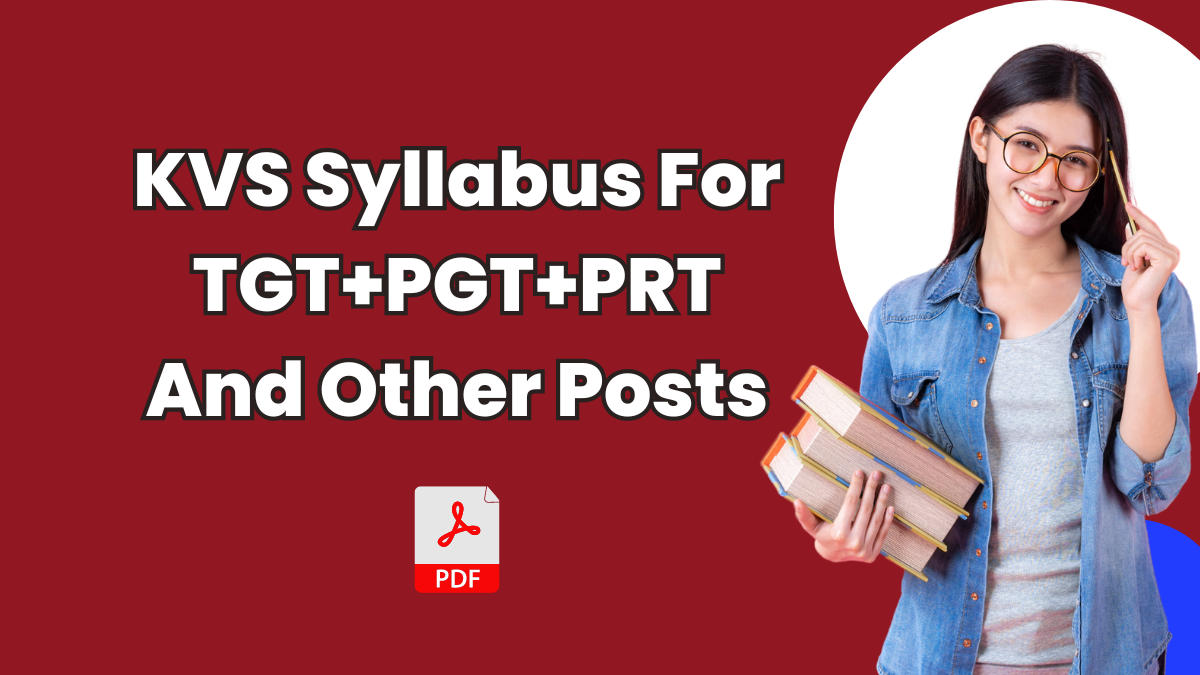
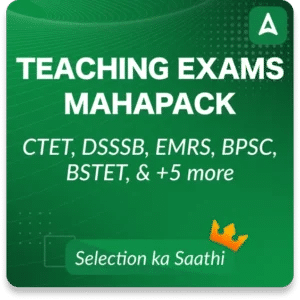

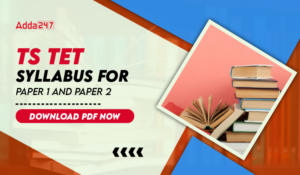 TS TET Syllabus 2025, Download Paper 1 &...
TS TET Syllabus 2025, Download Paper 1 &...
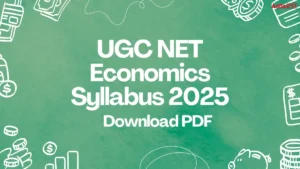 UGC NET Economics Syllabus 2025, Downloa...
UGC NET Economics Syllabus 2025, Downloa...
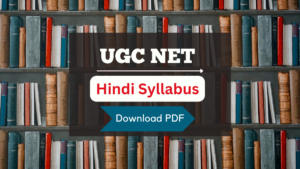 UGC NET Hindi Syllabus PDF Download, Che...
UGC NET Hindi Syllabus PDF Download, Che...














